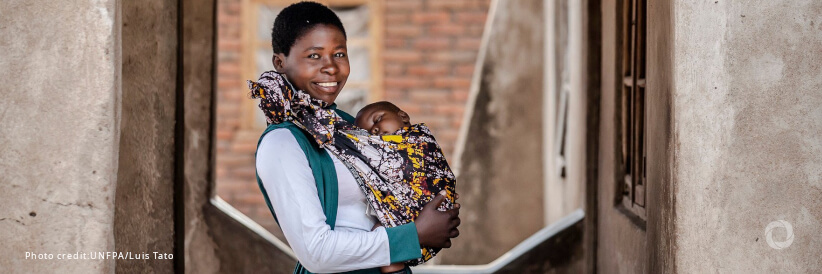Sweden announced a further investment of $42 million for sexual and reproductive health and rights (SRHR), in an effort to transform the lives of millions of people in East and Southern Africa. The funding is being made available through Sweden’s Strategy for SRHR in Africa 2022-2026.
The investment will bolster existing efforts by four United Nations agencies – UNAIDS, UNFPA, UNICEF and WHO – to support countries and regional entities in East and Southern Africa to reduce maternal mortality including from unsafe abortion, HIV and sexually transmitted infections (STIs), unmet need for contraceptives, and gender-based violence (GBV). The investment brings to $99 million the total amount committed by Sweden since 2018.
“We are proud that, as four UN agencies working together, we have created a regional movement of government, civil society and development partners committed to improving the sexual and reproductive health and rights of all people in East and Southern Africa, using an integrated approach. This investment by Sweden will enable this partnership to conclude the unfinished business and to fast track the realization of the SRHR targets of the Sustainable Development Goals,” said UNAIDS Regional Director Anne Githuku-Shongwe, UNFPA Regional Director Lydia Zigomo, UNICEF Regional Director Mohamed Fall and WHO Regional Director Dr. Matshidiso Moeti.
Despite progress made to date, the region is unlikely to ensure universal access to SRHR by 2030, without a concerted effort. Across the region, too many pregnant women die from preventable causes. One in five women in the region who need to use modern contraceptives are not using them, with adolescents and young women having the highest unmet need, resulting in high levels of early and unintended pregnancies.
HIV remains the single biggest threat to people’s sexual and reproductive health, with close to 670,000 new HIV infections occurring in the region in 2021, of which one-quarter were among adolescents and young women. And one in six adolescents and young women will have experienced GBV by the age of 19.
Progress continues to be challenged by structural, social and health system barriers. Restrictive laws, policies and traditional and cultural practices give rise to stigma and discrimination, which limit people’s ability to exercise their sexual and reproductive rights.
Health systems challenges – including inadequate domestic investments in health, poor infrastructure, stock-outs of essential commodities and supplies, and limited skilled personnel –undermine the health outcomes of people across the region. Many countries are becoming increasingly vulnerable to humanitarian crisis as a result of, climate change, socio-economic and geo-political shocks, with the health systems inadequately prepared to respond to such shocks and crises.
“The Swedish government remains committed to working alongside regional partners and countries to realize this continent’s aspirations to ensure SRHR for all, in line with the AU Agenda 2063 and the Sustainable Development Goals. We are excited that this investment aligns to efforts to support the regional SRHR initiative by the wider Team Europe group,” said H.E. Ambassador Håkan Juholt.
The continued support from Sweden will enable the 2gether 4 SRHR Programme to fast-track efforts to achieve universal access to SRHR. This will be done by supporting laws and policies that empower people to exercise their sexual and reproductive rights, and ensuring that they can access quality, integrated and people-centered SRHR services that meet their needs, including in times of crisis. With a comprehensive approach to SRHR, the social and cultural norms that give rise to the stigma and discrimination that impede people’s rights, health and well-being will be identified and tackled.

